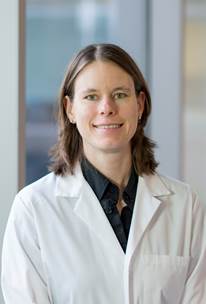The Warm and Fuzzy ICU
By: Sue Stempek, MMSc, PA-C, FCCP
July 24, 2018
Most people don’t think of the ICU as the most “warm and fuzzy” place on earth, but I am going to propose the idea that maybe they are wrong.
In my career as a critical care physician assistant (PA), I’ve also had a number of administrative roles. In my current role as Lahey Hospital and Medical Center Director of Advanced Practice, I am fortunate to have the opportunity to work with many different clinical specialties in optimizing the role of their advanced practice providers (APPs). I think we, in critical care, have done this well for a long time, and much longer than is publicly documented in the literature.
When I graduated from PA school, it was clear to me almost immediately that the critical care doctors I worked with were special. Of course, I mean no disrespect to our physician colleagues who do not practice in critical care; however, nothing promotes the team mentality more than the emergency of banding together to best help an acutely critically ill patient. There is a highlight on each person’s ability to help the patient and contribute with their expertise, there is universal respect for ideas, and no person is considered less than the next. The team works like a symphony orchestra with each person playing their role.
"The team works like a symphony orchestra with each person playing their role."
As an APP, I have always felt valued in my role as an integral part of the critical care team. The physicians I’ve worked with have universally worked to support growth in my knowledge base, and I know I need to remain incredibly motivated to create an evidence-based understanding of the critically ill patient. I am fortunate in helping extend the reach of our team in being able to provide care to many more critically ill patients than we’d be able to without the APP team.
So, back to the concept of the “warm and fuzzy” ICU. There are so many things that a robust interdisciplinary team does well, but I think patient- and family-centered care is the most important. As the advanced practice provider on the team, one of the incredibly important roles that I take very seriously is to take the time to provide patients and their surrogates a clear understanding of their illness and also discuss the patient’s goals. (Physicians do this too, as do my nursing colleagues, and a number of other team members.)
"There are so many things that a robust interdisciplinary team does well, but I think patient- and family-centered care is the most important."
Additionally, my institution is so supportive of my role as a critical care APP and the importance of our contribution to the patient (and surrogate) experience in the ICU, that I was allowed to lead a project standardizing our approach to patient/family/surrogate meetings. Also, in my role as faculty for the CHEST course, Critical Skills for Critical Care (August 24-26), I am continually committed to teaching in the context of my experience on the interdisciplinary team and its overall value to the patient and high-quality critical care delivery.
Team-based care is well documented in the literature, we all know that. I feel incredibly fortunate to have chosen a subspecialty of medicine that sets the standard for best practice in team-based care. Being an advanced practice provider has enveloped me into this culture, such that I am prepared to help others understand its benefits, all the while I feel assured of my added value to patient care.

Interested in learning more ICU skills? Register for Critical Skills for Critical Care.
Challenge your critical care knowledge with CHEST SEEK™ Education and subscribe to the CHEST SEEK Library or purchase our printed book. Look out for a new critical care edition coming this August!
Sue Stempek, MMSc, PA-C, FCCP, is the Director of Advanced Practice at Lahey Hospital and Medical Center in Burlington, MA, where she also works in a clinical capacity in the ICU. She has been in practice as a pulmonary and critical care physician assistant for 13 years and has a special interest in high-quality education for nurse practitioners and physician assistants in critical care specialties.